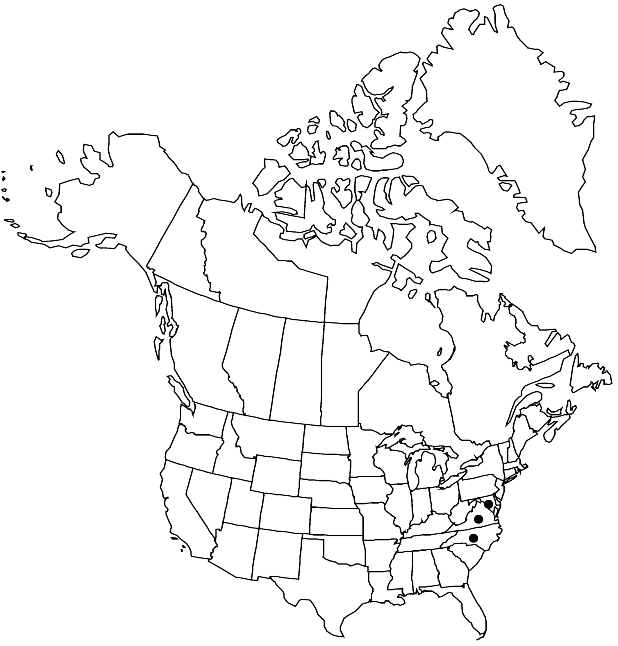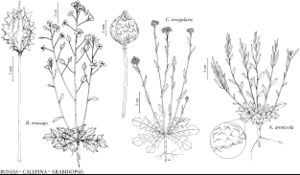Difference between revisions of "Calepina irregularis"
in H. Schinz and R. Keller, Fl. Schweiz ed. 2, 1: 218. 1905.
FNA>Volume Importer |
imported>Volume Importer |
||
| (6 intermediate revisions by 2 users not shown) | |||
| Line 1: | Line 1: | ||
{{Treatment/ID | {{Treatment/ID | ||
|accepted_name=Calepina irregularis | |accepted_name=Calepina irregularis | ||
| − | |accepted_authority=(Asso) Thellung | + | |accepted_authority=(Asso) Thellung |
|publications={{Treatment/Publication | |publications={{Treatment/Publication | ||
|title=in H. Schinz and R. Keller, Fl. Schweiz ed. | |title=in H. Schinz and R. Keller, Fl. Schweiz ed. | ||
| Line 7: | Line 7: | ||
|year=1905 | |year=1905 | ||
}} | }} | ||
| − | |basionyms={{Treatment/ID/ | + | |special_status={{Treatment/ID/Special_status |
| + | |code=I | ||
| + | |label=Introduced | ||
| + | }}{{Treatment/ID/Special_status | ||
| + | |code=F | ||
| + | |label=Illustrated | ||
| + | }} | ||
| + | |basionyms={{Treatment/ID/Basionym | ||
|name=Myagrum irregulare | |name=Myagrum irregulare | ||
|authority=Asso | |authority=Asso | ||
| + | |rank=species | ||
| + | |publication_title=Syn. Stirp. Aragon., | ||
| + | |publication_place=82. 1779 | ||
}} | }} | ||
|synonyms={{Treatment/ID/Synonym | |synonyms={{Treatment/ID/Synonym | ||
|name=Calepina corvini | |name=Calepina corvini | ||
|authority=(Allioni) Desvaux | |authority=(Allioni) Desvaux | ||
| − | }}{{Treatment/ID/Synonym | + | |rank=species |
| + | }} {{Treatment/ID/Synonym | ||
|name=Crambe corvini | |name=Crambe corvini | ||
|authority=Allioni | |authority=Allioni | ||
| + | |rank=species | ||
}} | }} | ||
|hierarchy=Brassicaceae;Brassicaceae tribe Calepineae;Calepina;Calepina irregularis | |hierarchy=Brassicaceae;Brassicaceae tribe Calepineae;Calepina;Calepina irregularis | ||
| Line 32: | Line 44: | ||
|elevation=0-200 m | |elevation=0-200 m | ||
|distribution=Md.;N.C.;Va.;Europe;c;sw Asia;n Africa. | |distribution=Md.;N.C.;Va.;Europe;c;sw Asia;n Africa. | ||
| − | |discussion=<p>The fruits of Calepina irregularis and Neslia apiculata are remarkably similar; the two can easily be separated by the presence of white instead of yellow petals and by the absence of indumentum in Calepina.</p> | + | |introduced=true |
| + | |discussion=<p>The fruits of <i>Calepina irregularis</i> and <i>Neslia</i> apiculata are remarkably similar; the two can easily be separated by the presence of white instead of yellow petals and by the absence of indumentum in <i>Calepina</i>.</p> | ||
|tables= | |tables= | ||
|references= | |references= | ||
| Line 41: | Line 54: | ||
-->{{#Taxon: | -->{{#Taxon: | ||
name=Calepina irregularis | name=Calepina irregularis | ||
| − | + | |authority=(Asso) Thellung | |
| − | |authority=(Asso) Thellung | ||
|rank=species | |rank=species | ||
|parent rank=genus | |parent rank=genus | ||
| Line 56: | Line 68: | ||
|publication title=in H. Schinz and R. Keller, Fl. Schweiz ed. | |publication title=in H. Schinz and R. Keller, Fl. Schweiz ed. | ||
|publication year=1905 | |publication year=1905 | ||
| − | |special status= | + | |special status=Introduced;Illustrated |
| − | |source xml=https:// | + | |source xml=https://bitbucket.org/aafc-mbb/fna-data-curation/src/2e0870ddd59836b60bcf96646a41e87ea5a5943a/coarse_grained_fna_xml/V7/V7_675.xml |
|tribe=Brassicaceae tribe Calepineae | |tribe=Brassicaceae tribe Calepineae | ||
|genus=Calepina | |genus=Calepina | ||
Latest revision as of 22:35, 5 November 2020
Stems several from base, (1–)2–8 dm, unbranched or branched distally. Basal leaves early rosulate; petiole (0.2–)1–3.5(–6) cm; blade obovate, spatulate, or oblanceolate, (0.8–)2–5(–9) cm × (3–)10–30 mm, base attenuate. Cauline leaves: blade oblong to lanceolate, (1–)2–7(–8) cm × (4–)10–20(–30) mm, base sagittate or amplexicaul, apex obtuse to acute. Racemes with straight rachis. Fruiting pedicels straight or curved upward, (3–)5–10(–13) mm. Flowers: sepals oblong or ovate, 1.2–2 × 0.5–1 mm; petals (1.5–)2–3 × 0.5–1.5 mm, unequal, abaxial pair larger than adaxial (longer than sepals); filaments 1–1.5 mm; anthers ca. 0.3 mm; gynophore 0.1–0.2 mm. Fruits 2.5–3.5(–4) × 2–3 mm, abruptly tapering to a conical, beaklike apex, 0.5–0.8 mm. Seeds brown, 1.3–1.6 mm. 2n = 14, 28.
Phenology: Flowering Mar–May.
Habitat: Fields, waste places, roadsides
Elevation: 0-200 m
Distribution

Introduced; Md., N.C., Va., Europe, c, sw Asia, n Africa.
Discussion
The fruits of Calepina irregularis and Neslia apiculata are remarkably similar; the two can easily be separated by the presence of white instead of yellow petals and by the absence of indumentum in Calepina.
Selected References
None.
